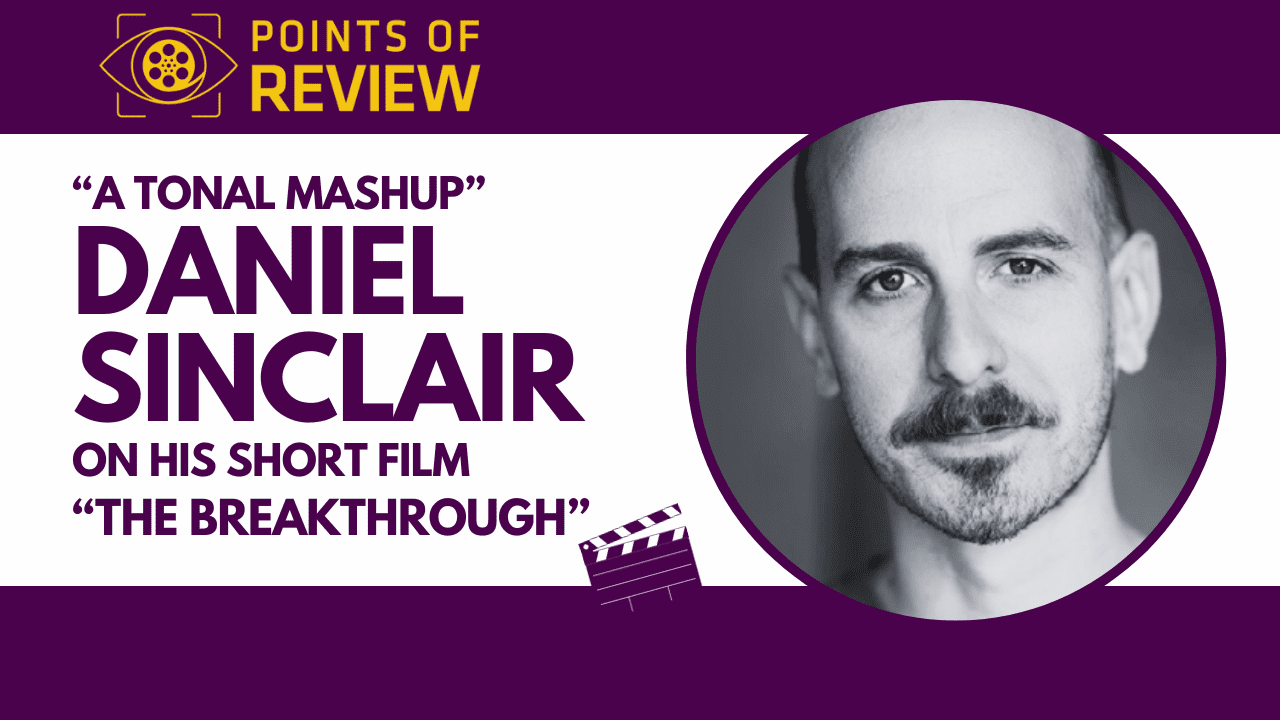Playing at the Calgary International Film Festival
Daniel Sinclair has been working in the industry for some time now, most notably serving as both writer and producer on the wildly popular NBC show, “Chicago Med”. Sinclair has previously donned the director cap for his 2013 short film, “Dinner with Holly”, but his latest film, “The Breakthrough,” appears to be the impetus for launching his career to the next level.
With his strong direction, paired with the film’s leads, Ben Sinclair (HIGH MAINTENANCE) and Greta Lee (PAST LIVES), “The Breakthrough” is almost certainly going to be in contention for the Jury and Audience awards at this year’s CIFF festival.
Full [Mostly] Unabridged Interview
As described by the Calgary International Film Festival, Jane and Teddy are on the brink of divorce – but when their marital problems come to a sticking point, they have an unexpected breakthrough.
Greta Lee (PAST LIVES) and Ben Sinclair (HBO’s HIGH MAINTENANCE) star in this outrageously dark and funny film that will have you questioning your own relationship issues.
It was an honour to sit down with Daniel, as we discussed the process behind making the film, working with such a talented cast, and plans for adapting “The Breakthrough” into a feature film.
Marriage with Bridget Moloney and Creating Relatable Characters in an Absurd Situation
Adam Manery
Before we discuss the two brilliant leads of this film, I wanted to talk about your wife, Bridget Moloney. She is a talented filmmaker in her own right, and she served as an executive producer on this film. Not only that, but she also has her Masters in Clinical Psychology, specializing in Marriage and Family Therapy. Given that much of this film centres on a couple’s therapy session, how involved was she in the getting this film made?
Daniel Sinclair
As you said, we’re both filmmakers and we’ve been together a long time. Before we even start writing anything, we usually pitch each other our ideas. When the initial idea came up, it felt like a cool idea, so I pushed it to her, and Bridget dug it. Unlike Teddy and Jane in this film, we’ve been married for 20 years and have been together for 14 years and we’ve never experienced what they are going through. We’ve never been in that position. That being said, I was able to touch upon my life and our marriage and when you’re in a relationship with anyone for a long period of time, you’re bound to have challenges you need to work through. So, there were some small details that made it into the film. For example, I was a very reluctant composter for many years despite its obvious environmental benefits, so there’s a hint of truth. But, when people watch the short, they say things like, “are you guys okay?”, or “I’m worried about you”, or they ask if the film is based on me. Like, “is Dan actually Teddy?”. The answer, of course, is no, but with the hints of truth the characters seem believable and relatable.
As you mentioned, this film focuses on two characters who are working through a struggling marriage. Some of the issues they are facing are hyperbolized for comedic effect, but at the same time, they remained relatable. It’s a difficult task to take some absurd elements but still ground them in these characters. How were you able to find that balance?
Over the years as a writer, when I have been working on my own stuff, it has felt like in order to get to this cool hook or concept, I had to find a heightened reality. You know, to try to get the audience to buy into whatever the story was that I was trying to tell. As I’ve gotten older and wiser, and just written more and more, I’ve found that it’s really difficult to bring audiences along unless they relate to what the characters are going through. In this particular film, I had a moment that I wanted to happen in the therapy session, and it’s pretty over-the-top. Before the moment that happens, you really want to have the audience be sympathizing with these characters, and so to do that it felt like you had to ground their issues in something realistic.
As I said, there is a kernel of truth to everything Jane and Teddy are going through. I sympathize with both of them, and I think there are parts of me in both of those characters. In the beginning, this movie is really a comedy, but it’s ultimately a tonal mashup. For the first several minutes of the movie, though, I was just focused on ensuring that I’ve established these characters and their issues in a realistic fashion, whether or not they were. It was funny, yes, but it was more important to me to make sure that I’m buying into who these people are and that I’m buying into what their issues are with each other. In a perfect world, as an audience member, you’re able to sympathize with what they’re going through, and when things go off-the-rails, if I did my job correctly, I bought some leeway with the audience and they stay with me.
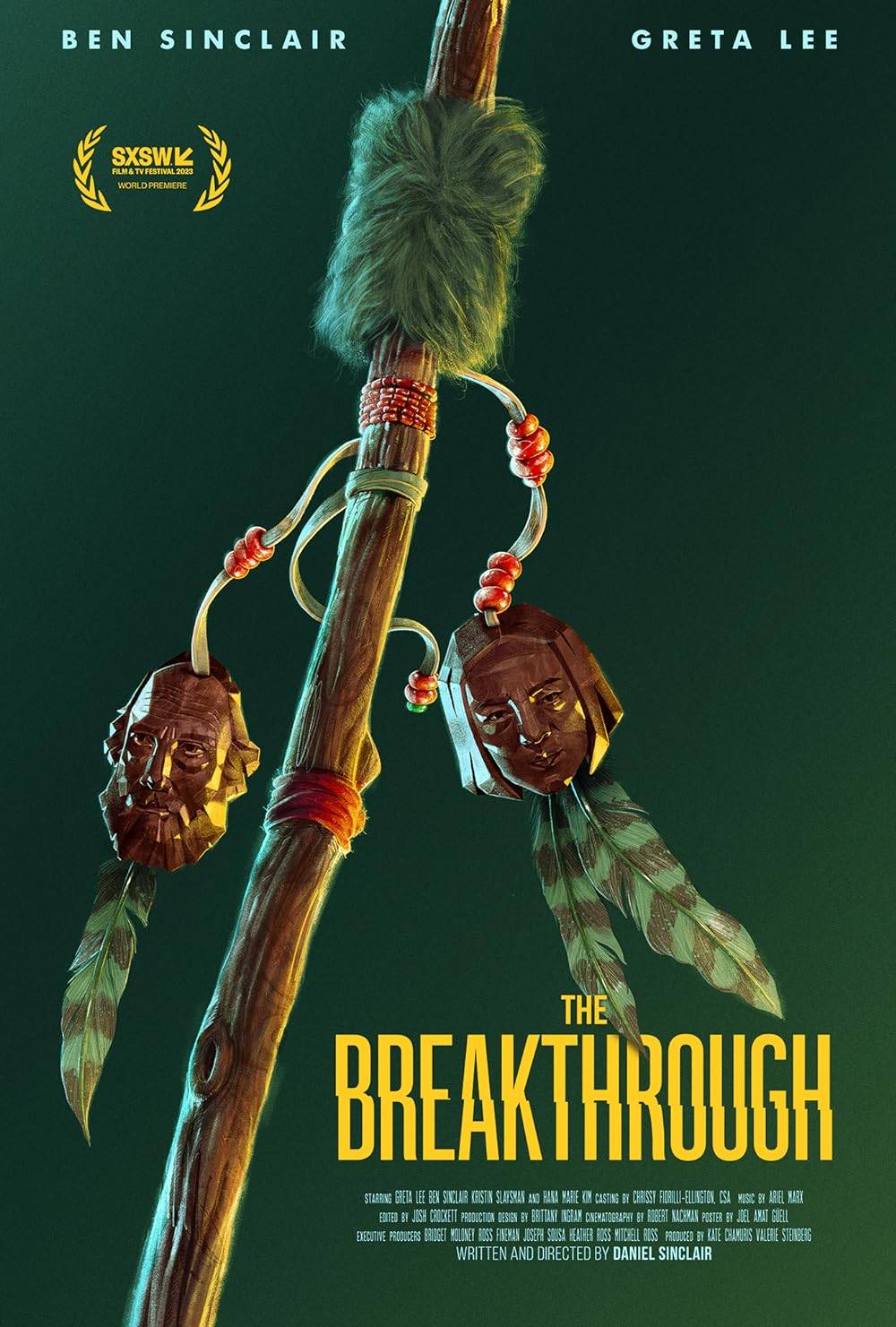
Working with His Brother, Ben, and 2023s Breakout Star, Greta Lee
The male lead in this film, playing Teddy, is your brother, Ben Sinclair. Did you write this script with him in mind, or did he come on board later in this process?
I didn’t write it with Ben in mind. I wrote it in 2019 and the pandemic got in the way of making it at that time, so I was just focused on writing the best script possible and not thinking about any actors in particular. I’m very fortunate that Ben is my brother. He’s an incredible actor and all-around filmmaker and we are fairly close. He has read things I’ve written over the years, and he’s sent me things that he’s written over the years. So, when it was time to find an actor, you want to get the best actor and someone you know. In a sense, I’m also calling in a favour. It’s a short film, not a huge budget, and Ben was an obvious choice.
Ben definitely thinks that character is based on me. In the weeks leading up to shooting, he’d say things like “I’m gonna do this with my hair, it it what you would do?”. Obviously, I don’t have any hair, but he would ask me personal questions in preparation for that role. And honestly, I didn’t dissuade him because there’s enough of me in there to suggest that, and he was just a natural person to go to. He’s famous, he’s a really good actor, and he knows me and what I’m attempting to do.
When a film works, and you look at the characters, you can’t imagine anyone else playing them. This was the case with Ben as Teddy, but also Greta Lee as Jane. She has been working for some time now, with success in roles on shows such as “Girls” and “New Girl”, but really broke out this year with her performance in Past Lives. What was it like working with her?
Greta and I actually met in college and we’ve been friends for 20 years. She and my wife, Bridget, went to high school together, and we all went to college together. There was a summer when we were all going to school and Greta sublet a room from me in my apartment. She has been on [Ben Sinclair’s HBO Show] “High Maintainence” a couple of times. She was a bridesmaid at our wedding, and Ben was a groomsman, so we’ve all known each other for years. I’m very close with her and her husband, and I was very lucky that she was willing to do this. She honestly filmed this about two weeks after Past Lives, and it’s awesome to see her get her just due. In a way, our short film is really riding the coattails of that movie’s success.
As you know, Greta was incredible and brought so many things to the film. It would happen when we were on set, and even more so after we shot it. I’d be watching the dailies and looking at what she’s doing, what Ben’s doing, and I’m watching away from the action and seeing what she’s up to. She brought so many little details and elements to the role that really elevated it. I think because she and Ben have known each other for so long, and we’re all very close, it just brought a familiarity that elevated everything. I don’t know if it plays that way on screen, but it certainly made the production aspect of it much easier.
In the film, the two characters are almost foils of one another. Jane is very “put together” and works a more traditional job, while Teddy is a bit “disheveled” and fulfills most of the domestic duties. Is that a reflection of Greta and Ben in real life, or is that purely the characters in the short?
I don’t think either of them are particularly close to those characters, and the way that came about was honestly in the script stage before they came on board. There are so many conventional stereotypes about gender and who fulfills the various roles in the home. It felt more interesting to have Jane be the professional “bring home the Bacon” type, and to have Teddy’s character be the one doing all the domestic tasks and fulfilling those responsibilities. It wasn’t that it was emasculating for Teddy or that Greta felt as though she’s not getting the respect for having to leave the house and do all the work, it just felt more interesting. It was a reversal of expectations based on what we generally see as stereotypical gender norms, and they end up both having complaints about these roles.
But no, in the end, Ben is very put together. He’s a focused artist and professional and works a lot. I don’t think he has any of the insecurities about his work that Teddy has. Yes, Greta also takes her work very seriously, but she is also a mother of two children and she’s fabulous with them. As I see it, I don’t think that Ben and Greta suffer from issues in the same way these two characters suffer.
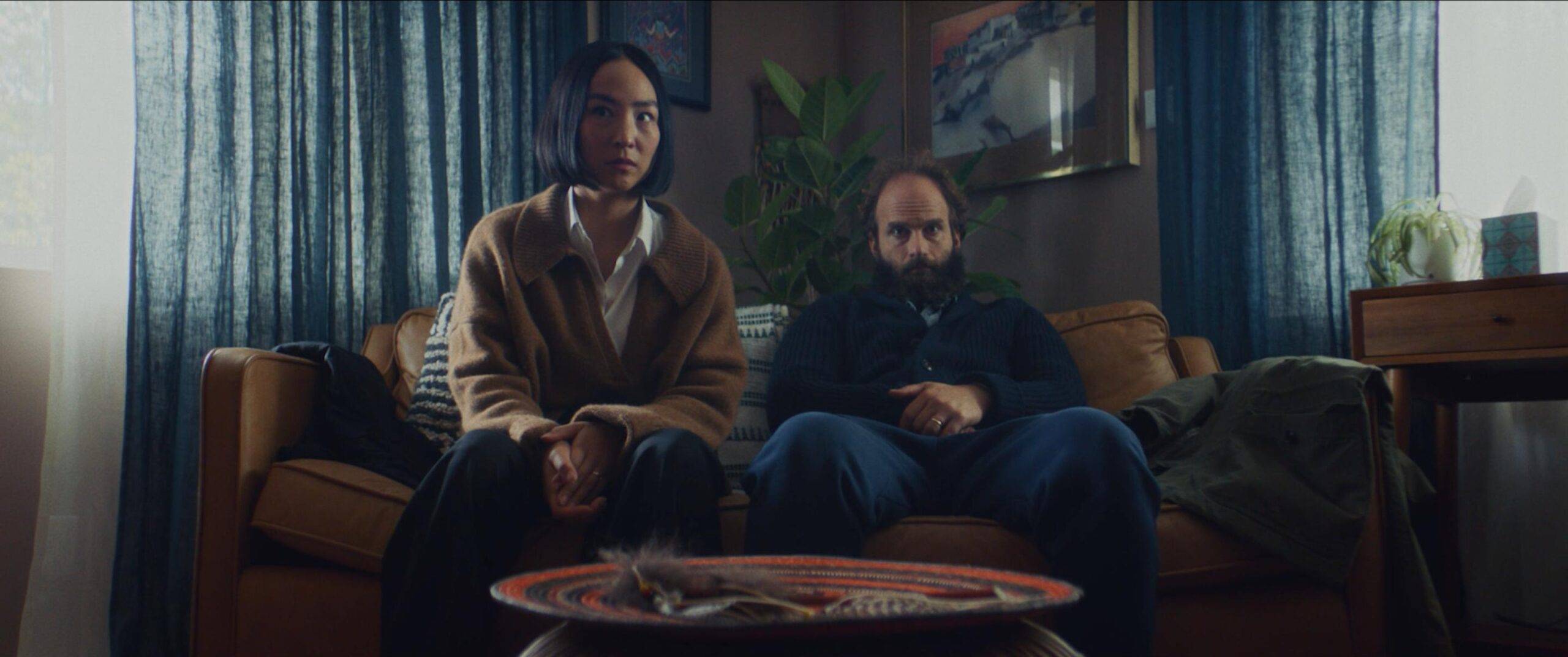
The Brilliant Score by Ariel Marx
In many short films, the score is often treated as secondary to the narrative. In this film, though, the score by Ariel Marx was mindblowing (in particular the first cut from the therapist’s office to back home) She is also having some tremendous success right now with other projects. What was it like working with her, and how did her contribution come about?
Ariel Marx is amazing. Her star is rising and I think I was able to get in just before she became too large. Honestly, by the time she had agreed to score the short, she was already doing the score for the limited series, “Candy” on Hulu. She’d already scored Shiva Baby, which was a big indie darling. She’s just working a ton because she’s so talented. The way we met Ariel was through a short film called “Blocks”, which my wife Bridget wrote and directed. Ariel provided the score for that film, and the producers who were behind “Blocks” also produced “The Breakthrough”. So between Bridget, the producers (Valerie Steinberg and Kate Chamuris), and I, we were able to at convince Ariel to read the script. She had one Zoom call with us, and she really liked the script, so she asked me to put some music together that I respond to.
There were a couple of inspirations for me. First and foremost in my mind would be Punch Drunk Love, the Jon Brion score. That movie was a big inspiration for this film. In part because of how it’s a romantic film, but there’s also a number of elements of “tonal mashup”. Sometimes it’s a thriller, sometimes it’s a straight up comedy, and Paul Thomas Anderson really blends these genres together. I watched that movie when I was prepping for this and I knew that I wanted a romantic waltz. There’s this kind of “fairy tale” element in the back half of this movie and I wanted to mimic that.
So, Ariel wrote the waltz like that. I put together a Spotify playlist and put in these references and other music I listen to. When Ariel was able to, we started emailing and she started working on the music cues. She would send them to me one at a time, and it was fast. Over the course of thirty six hours she essentially sent me a whole score. She is so quick and she clearly has an idea of what she wants to do. As far as the cut to which you’re referring, it’s a very hard cut. I knew that I wanted it to be chaotic. Percussive and with an edge to it, because the couple was afraid and their relationship was in turmoil in that moment. She gave me the chance to give my impression and notes, but what you hear in the film was honestly just what she came up with. I don’t even know if I had a note, I was so blown back by what she was bringing to the table
There was another scene later in the movie, and I thought that what she presented might be a bit too chaotic or discordant. So, I ended up asking her to give me some alternates. Very quickly, she whipped them up and I ended up realizing that she was right the first time. We went with what she had originally and that is a testament to Ariel. She is so good. She made me realize when I’m wrong. I was so lucky she was willing to do it. The music ties the whole movie together and I just can’t say it enough, she really elevated the material in such an amazing way.
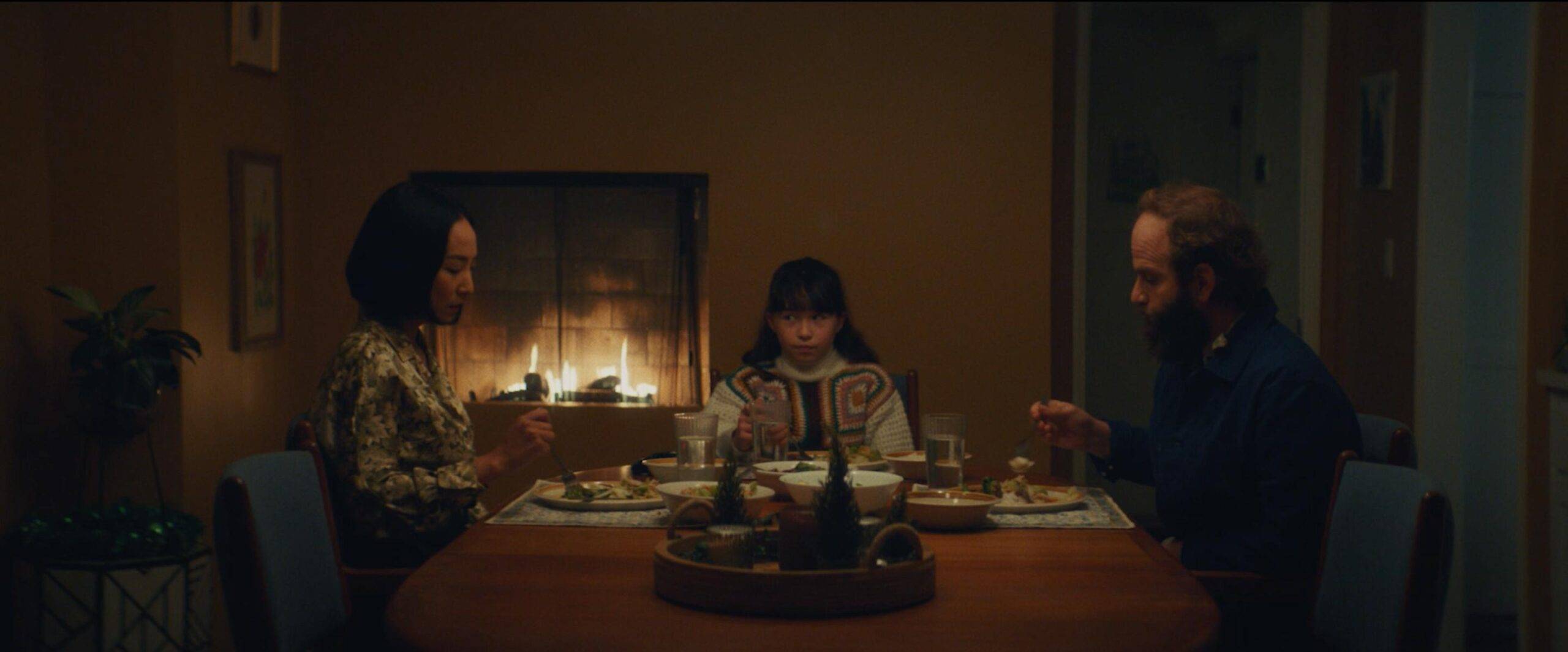
Turning This Short into a Feature
Are you working on any other projects at the moment?
Actually, I’m trying to develop “The Breakthrough” into a feature film. When I originally had the idea, I thought it would be a great feature somewhere along the line, but I decided to scale it down and try to pull it off as a short film, just to see if it had legs. I’m so thrilled with the success of the short and how it turned out. The last few months I’ve been working on flushing out a feature film script, which has been very challenging in the sense that, well, it’s not the short. It’s very much inspired by the short, but you can’t just stretch it out to 90 minutes and assume everything will just work out. I’ve had to remind myself that something doesn’t happen at a certain point in time in a story just because it happened that way in the short. It’s been a process for me to uncouple myself with the short now that I’ve watched it 150 times. Of course, there is also the strike with the Writer’s Guild, so there’s only so much I can do. I have to get the script in fighting shape and in order for it to be a successful script there’s a lot of hurdles to overcome before we can start thinking about making it. Right now, that’s my primary focus.
I can only speak for myself, but I would love to see this as a feature.
I’ll try not to give up on it, and hopefully I can make it happen.
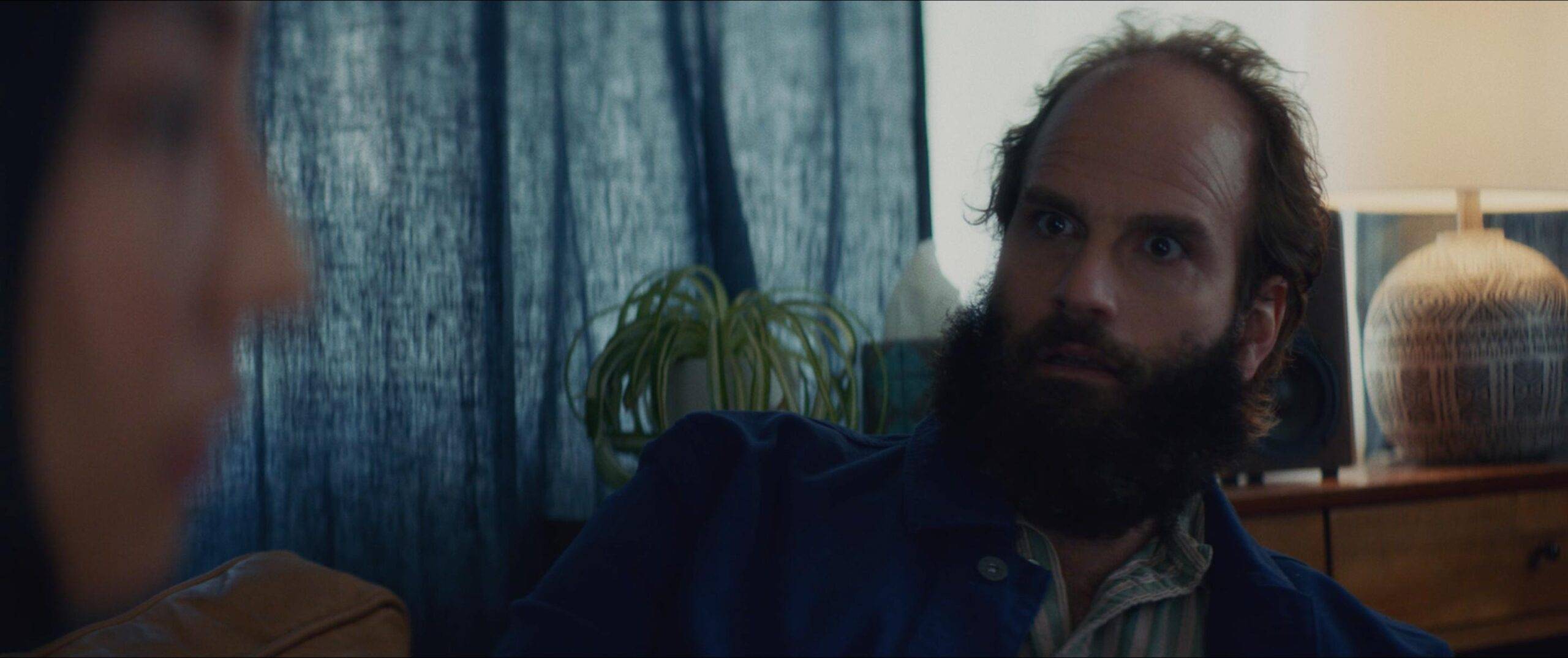
Check out “The Breakthrough”, the most recent film by Daniel Sinclair, playing September 27th at the Calgary International Film Festival. The film will also be available to watch online through the CIFF platform, starting September 28th.

